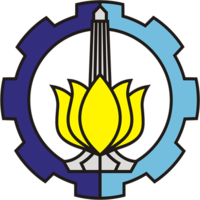Analisis Tantangan Moderasi Beragama di Era Digital melalui Perspektif Teori Filter Bubble dan Echo Chamber
Abstract
The digital era has revolutionized social interactions, including discussions on religious issues, through digital platforms. However, platform algorithms often foster filter bubbles and echo chambers, limiting access to diverse information and intensifying social polarization. Filter bubbles expose users only to content aligning with their views, while echo chambers amplify these views without engaging alternative perspectives. These dynamics pose challenges to interfaith dialogue and threaten religious moderation in Indonesia, a nation characterized by its vast religious diversity. This article examines these challenges using the concepts of filter bubbles and echo chambers as analytical lenses, focusing on how algorithms exacerbate polarized religious understanding and hinder openness to differing views. To address these issues, a comprehensive approach involving society, government, and digital platforms is essential. Enhancing digital literacy within society can cultivate critical thinking and openness to diverse perspectives. The government must establish policies promoting interfaith dialogue and curbing divisive content. Simultaneously, digital platforms should design algorithms that prioritize inclusivity, introduce varied perspectives, and foster harmonious interactions. Collaboration among these stakeholders can create a digital environment that upholds religious moderation, supports unity in diversity, and mitigates the risks posed by algorithm-driven polarization.
Keywords
Full Text:
PDFReferences
Ali, D. J., & Eriyanto. (2021). Political polarization and selective exposure of social media users in indonesia. Jurnal Ilmu Sosial Dan Ilmu Politik, 24(3), 268–283. https://doi.org/10.22146/JSP.58199
Bagas. (2016). Dialog Antar Agama Dinilai Bagus Sebagai Konsep Perdamaian. Universitas Muhamadiyah Yogyakarta.
Cass R. Sunstein. (2001). Republic.com. Princeton University Press.
Eli Pariser. (2011). Filter Bubble: What the Internet Is Hiding from You. Penguin Press.
Fantl, J. (2021). Fake News vs. Echo Chambers. Social Epistemology, 35(6), 645–659. https://doi.org/10.1080/02691728.2021.1946201
George Campbell. (1968). The Philosophy of Rhetoric. Oxford University Press.
Haekal Attar. (2023). Moderasi Beragama di Era Digital: Menyulam Kerukunan di Dunia Digital yang Bermakna. Jakarta.Nu.or.Id.
Haris, I. dkk. (2024). Tren Terkini Dalam Ilmu Komunikasi Di Indonesia: Antara Transformasi Digital Dan Dinamika Budaya. Filosofi : Publikasi Ilmu Komunikasi, Desain, Seni Budaya, 1.
Kamali, M. H. (2015). The Middle Path of Moderation in Islam, the Qur’anic Principle of Wasathiyah. Oxford University Press.
Rachmadhani, A. (2021). Volume 5, Nomor 2, Juli-Desember2021150OTORITAS KEAGAMAAN DI ERA MEDIA BARU: DAKWAH GUS MUS DIMEDIA SOSIAL. Panangkaran, 5(Otoritas Keagamaan di Era Media Baru).
Rhodes, S. C. (2022). Filter Bubbles, Echo Chambers, and Fake News: How Social Media Conditions Individuals to Be Less Critical of Political Misinformation. Political Communication, 39(1), 1–22. https://doi.org/10.1080/10584609.2021.1910887
Saifuddin L.H. (2022). Moderasi Beragama. Yayasan Saifuddin Zuhri.
Wulandari, V., Rullyana, G., & Ardiansah. (2021). Pengaruh algoritma filter bubble dan echo chamber terhadap perilaku penggunaan internet. Berkala Ilmu Perpustakaan Dan Informasi, 17.
Yochai Blanker. (2006). The Wealth of Networks: How Social Production Transforms Markets and Freedom. New Haven and London: Yale University Press. Social Science Computer Review, 26(2), 259–261. https://doi.org/10.1177/1084713807301373
DOI: http://dx.doi.org/10.12962%2Fj24433527.v17i2.22119
Refbacks
- There are currently no refbacks.
This work is licensed under a Creative Commons Attribution 4.0 International License.






